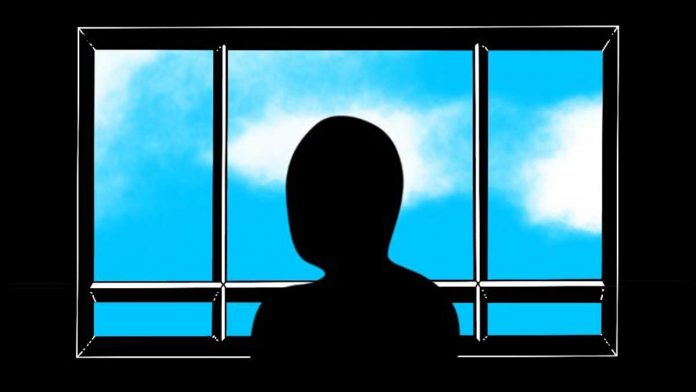Mental health professionals have already signaled the warnings: Common mental health conditions like anxiety and depression are likely to escalate during the coronavirus pandemic.
Everyone is sequestered in their ecosystems, trying to outdistance COVID-19 and its transmission dangers. According to a University of Washington study, LGBTQ people are more likely to have weakened immune systems, which can add to anxiety.
Queer folks also have different battles during isolation than their cishet peers. As colleges and universities closed down across the region, some local professors expressed concerns for students who had recently come out being sent back home for an unknown period of time to be with family members who might be homophobic or transphobic, while also having no access to LGBTQ community. At the other end of the generational divide, older LGBTQ people face being cared for by homophobic or transphobic family members.
Judy Morrisey, LCSW, who is on staff at Mazzoni Center, said LGBTQ people need to remember that “we are a resilient people.”
Morrisey said, “Queer people may be faced with additional challenges during the COVID-19 crisis. Quarantining to avoid the spread of the virus may be uncomfortable for some, especially young people, whose home environments are not supportive of their identities.”
She added, “For now, please recognize that we all need to come together to preserve ourselves and our communities. We are resilient. Our creativity is coming through with new online support communities and innovative ways to connect remotely while practicing social distancing.”
Dr. Jennie Goldenberg, a trauma specialist and social worker in private practice who previously worked with the Council for Relationships, said, “Many LGBTQ people have trauma histories. Dealing with anti-LGBTQ family members while being in quarantine — feeling trapped — is comparable to being in quarantine with difficult family members in general, then adding an exponential quotient for the bigotry.”
How should anyone in that situation cope? Goldenberg said, “How do you maintain your integrity in the face of barbed and bigoted comments? The fight-or-flight response gets triggered when in close quarters with emotionally abusive family members, and defensiveness ensues.”
Goldenberg stressed that setting boundaries can give people a sense of empowerment.
“Be direct and set firm boundaries with family members. Stop the negative interaction as soon as it begins, and exit the conversation when it becomes targeted on who you are or whom you love. Your own well-being comes first,” she said.
Everyone should reduce their stress as much as possible during quarantine, Goldenberg added: “This is not a time to add to your stress level by trying to change family members’ views on LGBTQ folks. Your energy needs to be focused on self-care and healing at this time.”
Dr. Bruce Lackie’s clinical practice specializes in trauma, working with both youth and veterans with a focus on post-traumatic stress disorder. He is also a licensed social worker.
Lackie told PGN, “Trauma is the absence of choice, and many LGBT people have significant trauma histories. But at this time of crisis in our country and in the world, we can choose how to react to hurtful family members, keeping ourselves safe in every way we can.”
Remembering that everyone is feeling fear and experiencing stress helps, he said. “For LGBT people who may find themselves stuck in close quarters with abusive family members, try to remember who you are and believe in yourself, and remember that everyone is feeling fearful right now.”
Goldenberg emphasized trying to be proactive with emotions as they happen. She said there are actions people can take during the pandemic to self-soothe and create personal calm. Settling our nervous systems is key, Goldenberg explained. “There are many techniques for using deep breathing to cope with stress. One that is quite useful for my clients is the 4-7-8 breathing promulgated by Dr. Andrew Weil. In for four through your nose, hold for seven, exhale for eight slowly through your mouth. This will calm down your racing heart and worried mind.”
While we are under a shelter in place order, it might not be possible to get outside, but Goldenberg said connecting with nature is still important. “If you can’t go outside, look out the window and focus on the trees, the birds, the colors of spring. Contact people who love and support you. Call your therapist if you have one. Most of all, have compassion for yourself.”
Morrisey said, “Despite rapidly changing information, it is important to keep perspective that this is temporary. Things will change for the better at some point, and we will be able to resume some of our routines when that is advisable.”
She said, “Mazzoni Center is here to help. We’re offering telehealth services for medical and behavioral health and helping people connect with necessary resources,” adding, “In my interactions with people, the overwhelming response has been positive and grateful for our efforts. With so many things that work to keep us apart, it is heartwarming to experience this positivity.”
Lackie said we can all try our best to maintain connections and remember that self-care isn’t just a social media trope, it’s an essential survival skill and one we can employ for ourselves and suggest to others. He urged folks to strive for grace in this exceptionally trying time.
Lackie said, “This may well be a very long haul. All of us need to tolerate this uncertainty as gracefully as possible, helping others as much as we can. But that help starts with helping ourselves.”
Mazzoni Center: (215) 563-0652
Council for Relationships: (215) 382-6680
The Trevor Project: 1-866-488-7386
Ask questions, get answers about COVID-19








